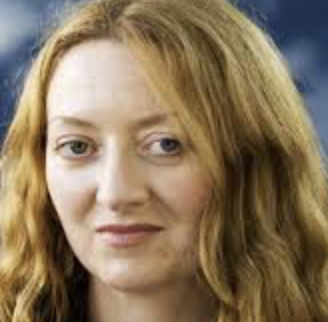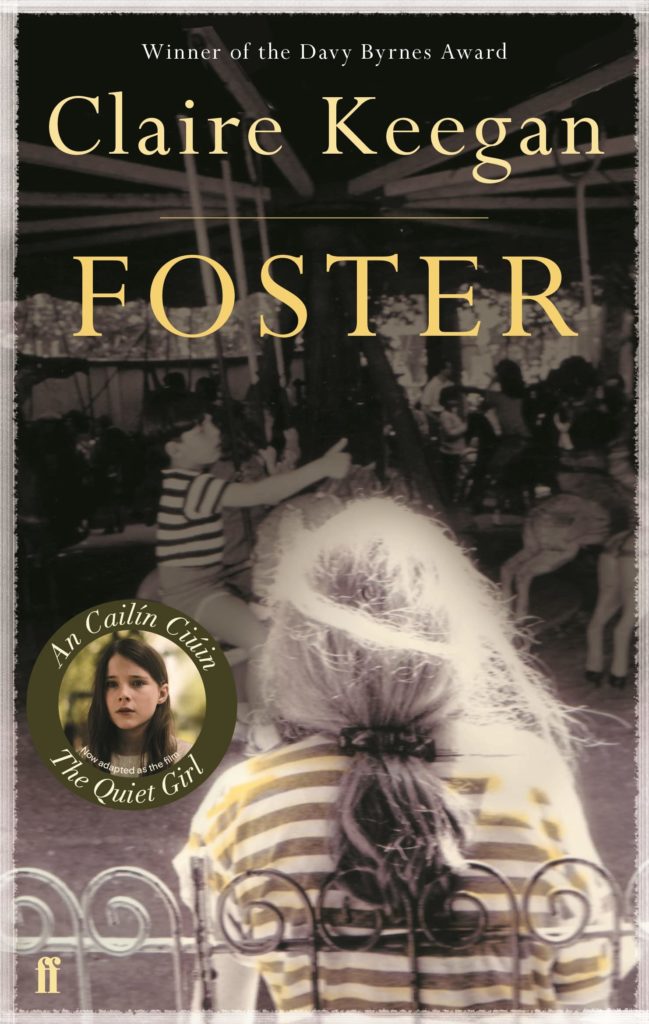Foster
By Claire Keegan
Faber & Faber Limited
Bloomsbury House
London, England
2010
By Sabina Clarke

This powerful novella set in rural Ireland by Irish writer Claire Keegan is narrated through the eyes of a young girl whose name we’re never told. She is being driven from her home in Clonegal,
County Carlow to ‘deep into Wexford towards the coast where my mother’s people came from.”
Along the way, lying flat in the car’s backseat staring into the treetops through the rear window she wonders what this new place belonging to the Kinsella’s–a childless couple–will be like.
Her father does not talk on the ride; his manner is perfunctory. He delivers her in the clothes she is wearing—tattered and worn—and with her in need of a good scrubbing. He is anxious to leave as soon as he arrives but decides to stay for the ‘bowl of tomatoes and onions, a fresh loaf and a block of red cheddar.’

There is idle chit chat in the Kinsella’s kitchen about his expectant wife—the girl’s mother—who is having yet another baby coming into his impoverished household that struggles to make ends meet. The woman Kinsella inquires:
“And what way is Mary? She’s coming near her time… I suppose the last baby is getting hardy?” “Ah, it’s feedin them that’s the trouble”—the girl’s father replies.
This sets the stage for the new world the girl will enter. She has already begun questioning her father’s feelings for her— “Why did he leave without so much as a good-bye?”… Soon she discovers that in the strangers’ house she finds warmth and affection she has never known. There is also for the first time —abundance. She is now in a house “where there is room and time to think. There may even be money to spare.”
Eventually a secret is told. Keegan is a master at capturing the jealousies and pettiness of the Irish locals who don’t refrain from criticizing even the corpse in the casket at a wake. With compliments, there is always the double-edged sword—a local she encounters in town says to the Kinsella woman. “Ah, isn’t she company for you all the same, God help you.”
When summer ends, the girl is returned home—but it is not the same—“My sisters look at me as though I’m an English cousin, coming over to touch my dress, the buckles on my shoes. They seem different, thinner and have nothing to say.”
The story ends with a crescendo—that though tempted to tell I will refrain. It is as powerful an ending to a novella as I’ve ever read.
Claire Keegan, an Irish writer, lives in rural Ireland. She won the Davy Byrnes Award, the world’s richest prize for a story for her book Foster. Other awards include the Rooney Prize for Irish Literature and the William Trevor Prize. She has been published in The New Yorker, Best American Short Stories, Granta and The Paris Review.
